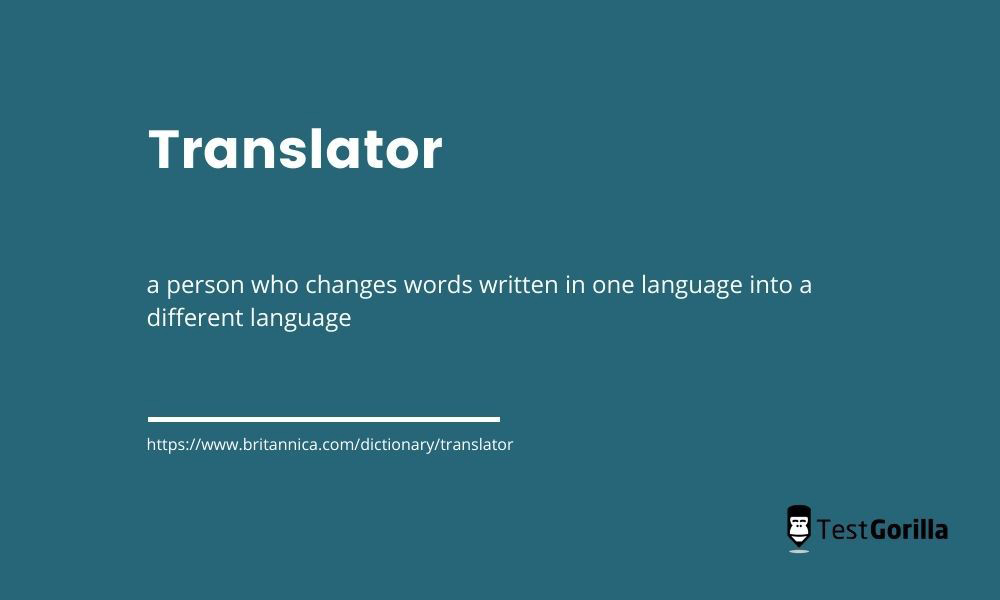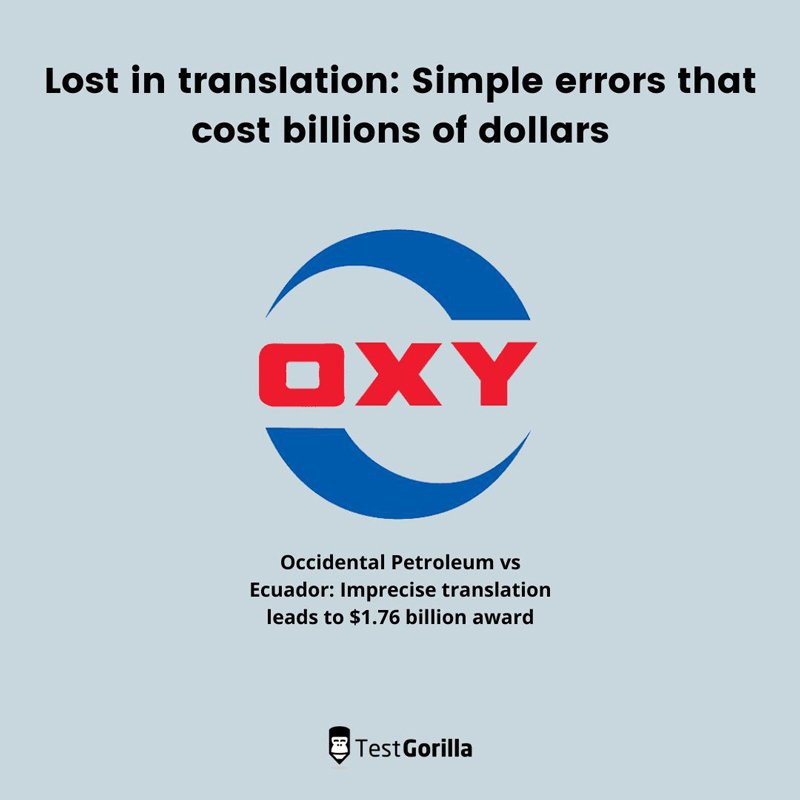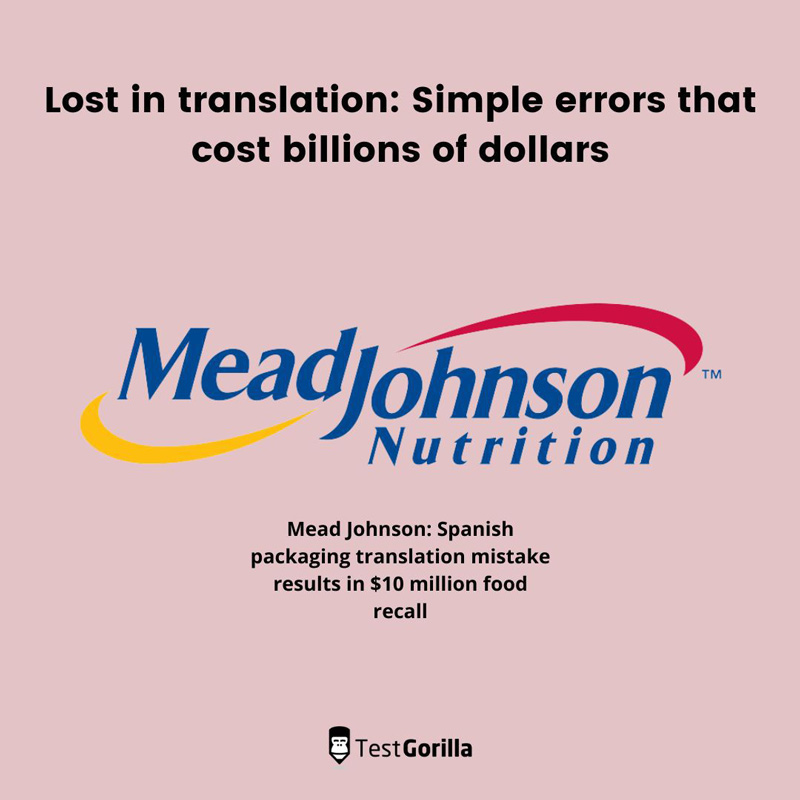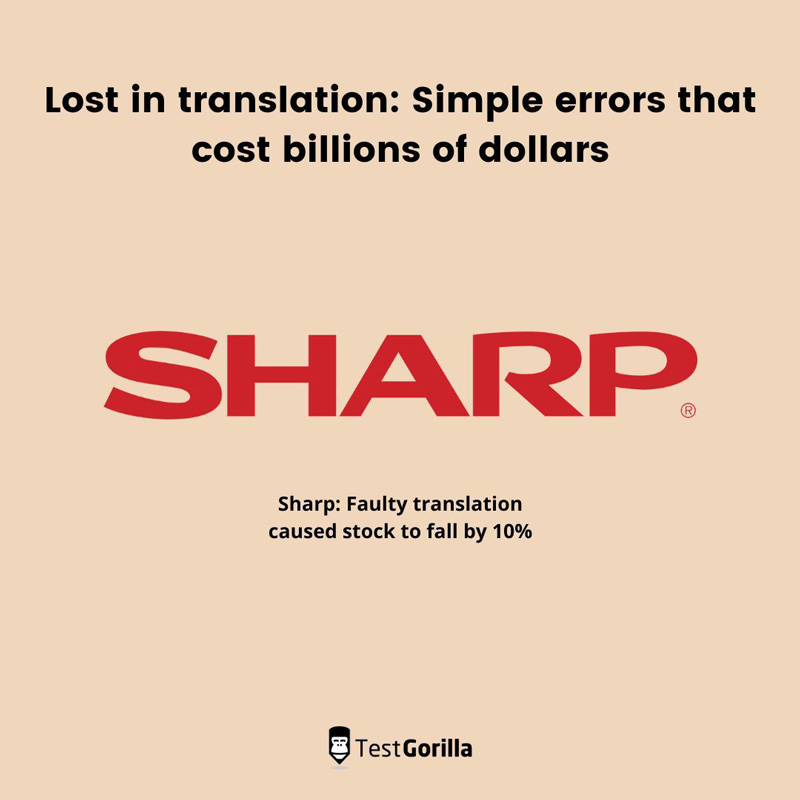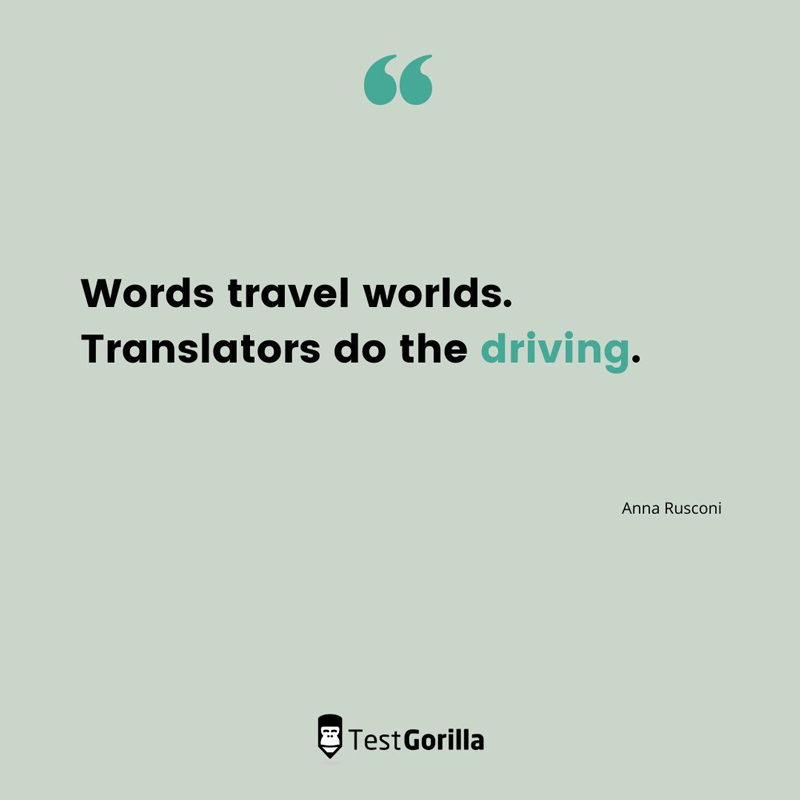Business opportunities are growing with the rise in global trading. Technology has helped us bridge the gap between countries, but the language barrier is often still there.
The need to talk and work with others who speak different languages is rising, but how do you ensure clear, error-free written communication when you don’t speak the same language? The simple solution is to hire translators.
If you want someone to help you communicate verbally in another language, you need an interpreter instead of a translator – people often mistake them for the same thing, but translators deal with the written word.
We’re going to look at the top tips to hire translators, and also show you how our range of language skills tests (including the Polish (proficient/C1 level test) can help you find good translators.
Table of contents
- Why not just use machine translation?
- 1. Work out your translation requirements
- 2. Check the credentials of the translator
- 3. Check out a translation company’s credentials
- 4. Cost of hiring a translator
- 5. Negotiate a reduced fee for repetitive language content
- 6. Data security
- 7. Ensure the translators know what your in-house style is
- 8. Plan out the translation schedule
- 9. Localization Ability
- 10. Assess the translator before the start of the project
- Hire translators quickly and easily with TestGorilla
Why not just use machine translation?
While many people use language translating programs like iTranslate or Google Translate, there are very sound reasons why you shouldn’t rely on them for business translation.
A skilled business translator can also localize your website and help you with preparing your international marketing plans. A good translator can assist you in virtually all areas of global expansion in your organization, which makes them a must-have if you are hoping to expand abroad. There’s no translation app in the world that can do this.
However, you need to know what you are doing when it comes to hiring a professional translator. Words can have multiple meanings in some languages. There’s also nuance, context, metaphors, jargon, and local slang to take into account, which is why machine translation often doesn’t work well in many situations. Inexperienced human translators often struggle with this too, and that can lead to costly mistakes.
German-based Mercedes-Benz found this out firsthand when it entered the Chinese market. The brand name was translated into “Bensi” in Chinese, which doesn’t sound bad at all to English speakers (it actually sounds rather cute). However, the name “Bensi” means “rush to die” in Chinese, which is an unfortunate name for a car manufacturer.
Embarrassed, Mercedes-Benz had the name changed in Chinese to “Benchi”. This time the name meant “run quickly as if flying”. Much better.
Here are our top ten tips to hire translators who will help you avoid a similar translation slip-up, and we’ve also got advice on how to find a translator, as well as information on working out a fair price for a translation job.
1. Work out your translation requirements
What do you need to be translated? How complex is the topic? When do you want it completed? These questions and more need to be worked out before you attempt to hire translators.
For any translation project, you must decide if you want to hire a freelance translator, a translation agency, or hire a translator as a permanent part of your staff.
For example, if you have a document in English and you need it translated into a widely-spoken language such as German or Polish, and there’s no urgency, then a freelancer will be able to deal with it easily.
If your translation or localization needs are more complex, in a lesser-known language like Bahasa Malaysia, or if you need a job done quickly, then a translation agency may be the better option as they will be used to dealing with such requests and will have multiple translators who can work on larger projects.
2. Check the credentials of the translator
Checking skills and credentials is important if you want to hire translators.. If you need a Polish translator, for example, you should ask candidates if they are bilingual and/or a qualified translator. You should also look at giving them a Polish language skills test to ensure they have the fluency you need to get a good translation.
Another crucial point that is often overlooked is that you must have a translator who is a native speaker of the target language. Translators work in language pairs, and will always be far more proficient in one language than the other. If you want a translation from English into Polish, then it’s key to choose a native Polish speaker, not a native English speaker.
The reason for this is that the translator’s ability in the source language (English), is of less importance than the proficiency they have in the target language (Polish). Why? It’s because they will be able to ask you questions and clarify any queries about the English source text they have.
You should also ask the translator how many years of experience they have, and what areas they specialize in.
How do you find a translator with professional certification? The American Translators Association (ATA) is currently the only organization in the United States that offers certification to professional translators. One of the easiest ways to find a certified professional translator is through the ATA’s online database of translators.
It’s fine to ask for sample translations and references from past clients, as well as asking if they would be willing to take a quick online language skills test.
3. Check out a translation company’s credentials
If you decide to hire translators from a translation service or agency, you will still need to be happy with their credentials before you go ahead.
As well as asking about the expertise of the translator who will be working with you, you should also ask about the translation company’s certification.
Although translation service provider certification is no guarantee of high-quality translation, it ensures the agency maintains a good level of quality control on the work by using regulation systems.
Translation services often have access to special resources that freelance translators don’t, such as Translation Memory (TM) software. TM software is intended to reduce the translator’s workload and the time needed for the project, but it also helps to reduce the number of errors.
It’s also a good idea to check that the translation company is familiar with industry standards in your field. Companies have access to a pool of translators, so you can hire translators with greater specialization in your field, which is an advantage over freelance translators.
4. Cost of hiring a translator
Cost is always paramount when you are looking to hire translators for your business. Pricing tends to vary widely in the translation industry, so it’s essential to do your research. Some service providers charge by the word or the page, while others may give you a price per document or an hourly rate.
When you hire translators, the price is determined by several factors, including the availability of translators who work in the language or your specialized field. The credentials of the translator or the agency, the difficulty and volume of the project, and the turnaround time are also factors in the pricing.
There are some things to bear in mind when researching prices. If you opt to pay by the word, then it pays to know that some languages use more words than others to convey meaning.
Most translators prefer to charge by the word unless doing so doesn’t make financial sense for them. For instance, if the document is short or needs a large font size, the translator may decide to charge by the document or page.
Avoid paying translators by the hour, because you could end up overpaying. A project may look simple to you, but it may actually be difficult and take a lot of time to translate.
Also, don’t be tempted to hire translators who charge under the usual going rate for your job. They may be inexperienced amateurs or may use machine translation on your project. It’s not worth the risk, especially if you want legal documents translated.
5. Negotiate a reduced fee for repetitive language content
Translation projects such as contracts and technical manuals often contain repetitive language, which takes less work for the translator. If there are a lot of repeated words and sentences in your project, you should ask for a discount.
You or the translator will have to look at the document to find out the number of exact and close matches in your text. This is where using a translation company or agency is a good idea, because they will often have translation software programs with an analysis function to calculate the percentage of matches. Once you know this, you can negotiate a fair price for your project.
6. Data security
Nowadays, data security is crucial. This is especially important if you need legal and medical document translation. A serious translation data breach happened when Statoil, one of the world’s biggest oil and gas companies, used free online translation software to translate sensitive material, such as notices of dismissal, passwords, and code information.
When choosing to hire translators, you must ensure that they understand and follow best practices to keep data secure. They should also have previous experience working with data-sensitive industries.
Ask about the precautions taken by your translation service to keep your documents safe and secure:
Where will your documents be kept?
Are translators bound by confidentiality agreements?
Does the agency sign confidentiality agreements for specific projects?
Are the translators aware of and able to meet your confidentiality standards?
Also, it’s best to hire translators who provide you with a single point of contact to discuss your needs with you throughout the whole project.
7. Ensure the translators know what your in-house style is
Before you hire translators, you should give some thought to letting them know what your organization’s writing style is.
This point is often overlooked as unimportant, but when you tell a translation service provider about your in-house style, it can help you get the project completed faster and more effectively.
For example, do you use formal business language in your communication, or do you prefer a younger, more casual vibe? Do you prefer to use the word “client” or “consumer” instead of “customer” or “shopper”?
If your translator knows this in advance, it will help them make the right word choice quicker and will keep your translation aligned with your organization’s image.
8. Plan out the translation schedule
You need to have plenty of time in hand when you create the translation schedule, because last-minute changes and additional translation is often needed.
Many companies decide on translation and then discover that they need extra work done. This results in translators rushing to finish the extra work on time, which leads to errors and potentially costly mistakes.
Planning in advance will save you additional costs, stress, and rushed translations.
9. Localization Ability
Just translating the content into the desired language isn’t enough. You also need to have it localized to align with the target audience’s needs. Translations are only effective if they resonate with the audience.
As mentioned earlier, what’s acceptable in one culture may be taboo in another, and that’s true even if both cultures speak the same language. For example, the word “fanny” in US English (as in “fanny pack”) is widely used and regarded as inoffensive, but in British English, it’s often regarded as sexual slang relating to women.
So, before you hire translators, make sure they are native speakers of the target language so you’ll avoid any localization pitfalls.
10. Assess the translator before the start of the project
When you hire translators, perhaps the most important step is to assess them before you start working with them.
A language skills test, like our Polish (proficient/C1) test, is created by a subject-matter expert and is based on the CEFR language framework. C1 level is regarded as proficient, and those with this level of proficiency have an understanding of the language at the same level as (or even above), native speakers.
We have a large range of language skills tests in our test library, covering from beginner to proficient levels. Some examples include:
Use these tests to assess language proficiency before deciding to hire translators. For more information on using language tests successfully, why not read our post on your hiring team’s guide to language proficiency tests?
Hire translators quickly and easily with TestGorilla
Hopefully, our guide to finding a translator for your business has given you a solid framework to start your search.
Did you know that you can also create a full pre-employment skills assessment with us?
It’s a great way to gain an in-depth understanding of the candidate’s strengths and weaknesses in a variety of areas.
TestGorilla assessments consist of up to five separate tests chosen by you, which the candidates take in one sitting. You can also tailor the tests with custom questions to suit the specific role you are hiring for.
Just as an example, if you chose to use the Polish (proficient/C1) test as part of your assessment, you could add up to four other tests, including any from the following categories:
Role-specific
Cognitive ability
Language
Programming skills
Situational judgment
Software skills
Personality and culture
Although creating an assessment might not be relevant if you are just looking to find a translator for one or two documents, it will be invaluable if you plan to hire translators long-term, or need an employee who is proficient in a specific language.
Sign up for your free plan to get started with your first TestGorilla assessment. If you want more information or to see how our products work first-hand, book a free 30-minute live demo with our sales team, who will be happy to help.
Related posts
Hire the best candidates with TestGorilla
Create pre-employment assessments in minutes to screen candidates, save time, and hire the best talent.
Latest posts
The best advice in pre-employment testing, in your inbox.
No spam. Unsubscribe at any time.

Hire the best. No bias. No stress.
Our screening tests identify the best candidates and make your hiring decisions faster, easier, and bias-free.
Free resources
This checklist covers key features you should look for when choosing a skills testing platform
This resource will help you develop an onboarding checklist for new hires.
How to assess your candidates' attention to detail.
Learn how to get human resources certified through HRCI or SHRM.
Learn how you can improve the level of talent at your company.
Learn how CapitalT reduced hiring bias with online skills assessments.
Learn how to make the resume process more efficient and more effective.
Improve your hiring strategy with these 7 critical recruitment metrics.
Learn how Sukhi decreased time spent reviewing resumes by 83%!
Hire more efficiently with these hacks that 99% of recruiters aren't using.
Make a business case for diversity and inclusion initiatives with this data.

